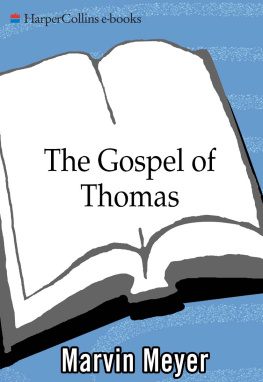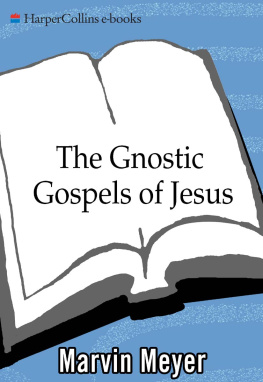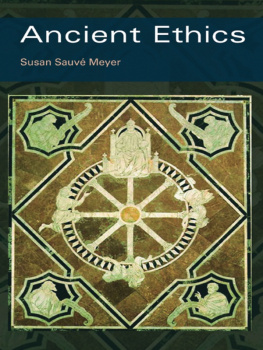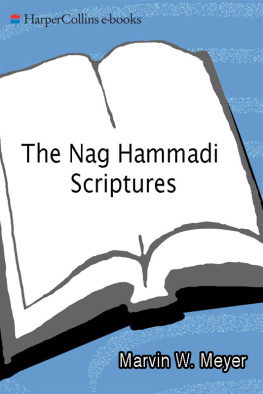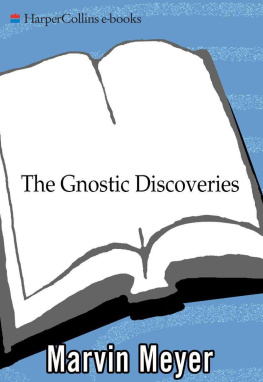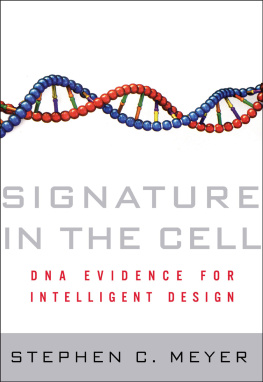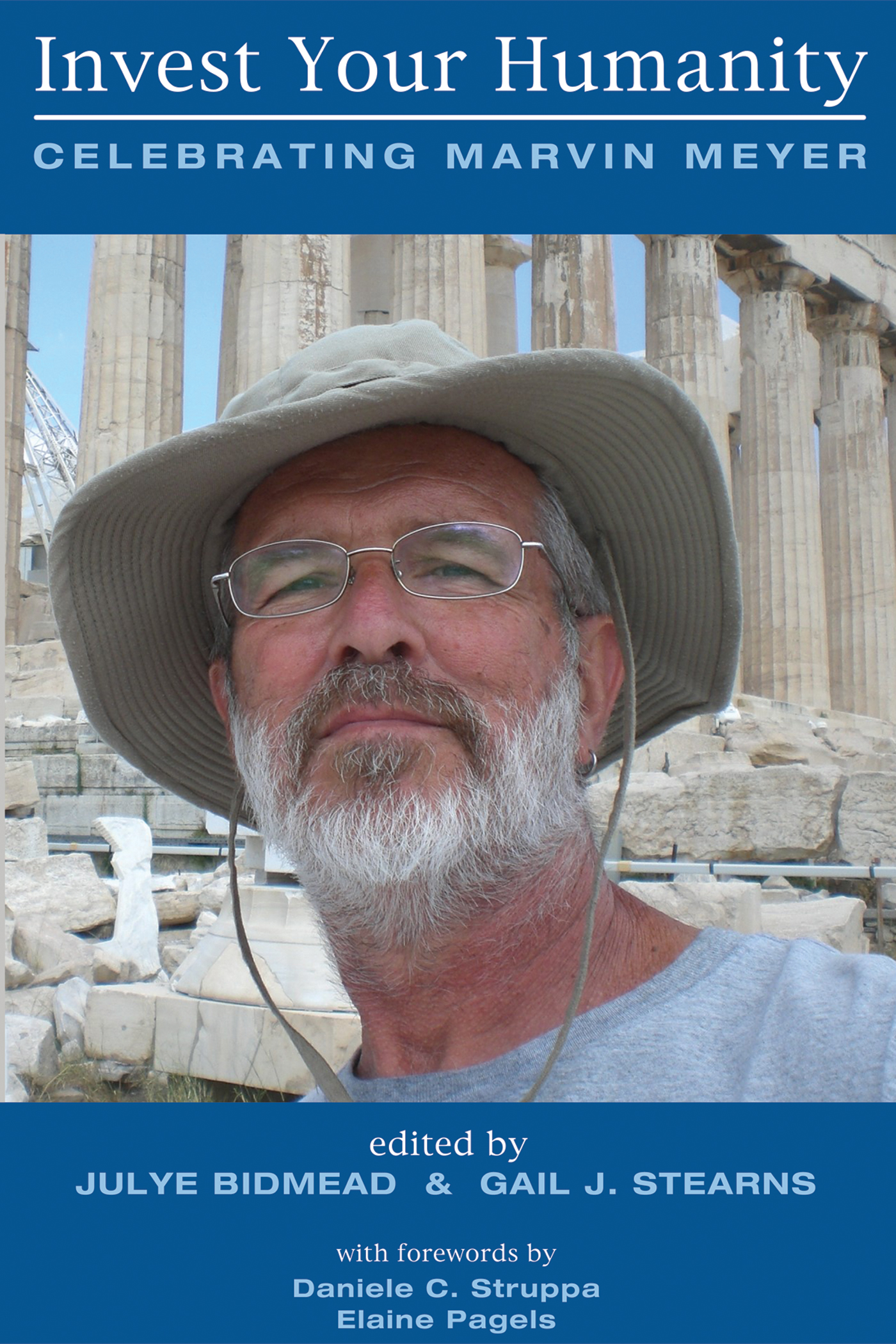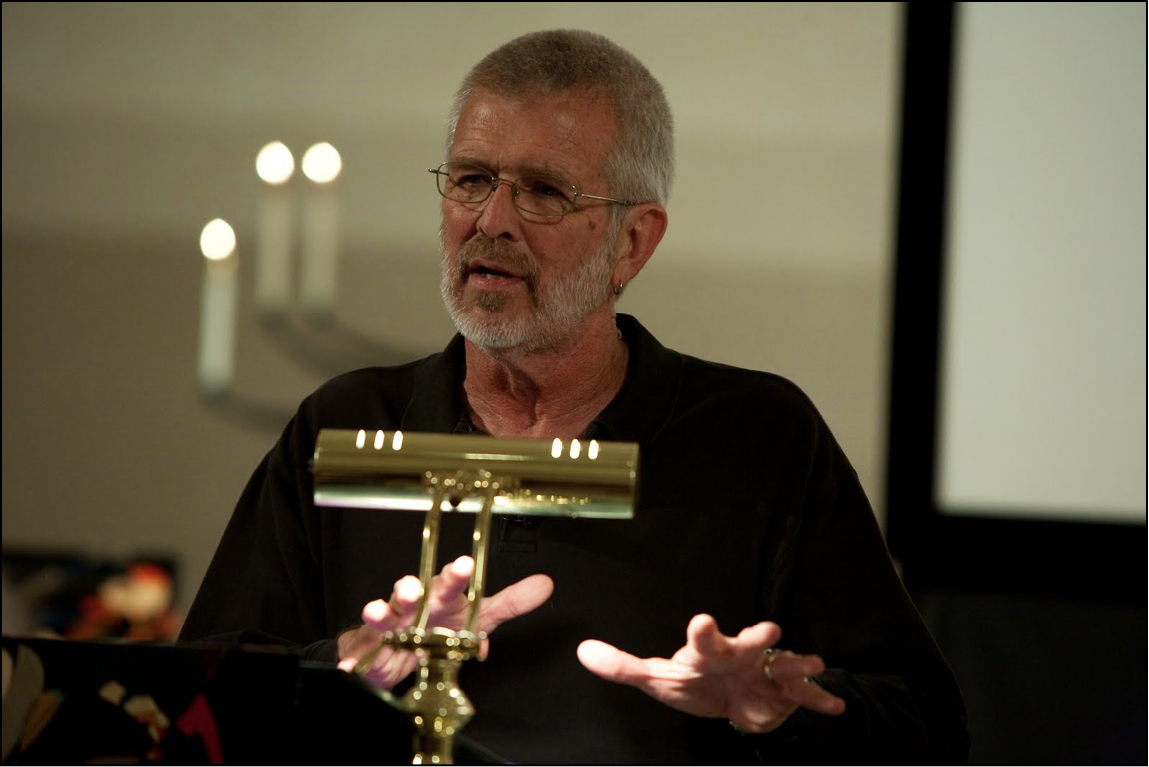Copyright 2015 Wipf and Stock Publishers. All rights reserved. Except for brief quotations in critical publications or reviews, no part of this book may be reproduced in any manner without prior written permission from the publisher. Write: Permissions. Wipf and Stock Publishers, W. th Ave., Suite , Eugene, OR 97401 .
W. th Ave., Suite
Invest your humanity : celebrating Marvin Meyer / edited by Julye Bidmead and Gail J. Stearns ; forewords by Daniela C. Struppa and Elaine Pagels.
xviii + p. ; cm. Includes bibliographical references.
1. Meyer, Marvin W. 2. Nag Hammadi. 3. Gnosticism. 4. Schweitzer, Albert, 18751965. I. Bidmead, Julye. II. Stearns, Gail J. III. Struppa, Daniela C. IV. Pagels, Elaine. V. Title.
This volume is dedicated to Marvin W. Meyer
Marvin Meyer speaking in the Fish Interfaith Center at Chapman University. Photo courtesy of Chapman University.
Foreword
Daniele C. Struppa
I decided to join Chapman University approximately ten years ago, and Marv Meyer was one of the reasons that convinced me that Chapman could be a great new home for me.
I was, at the time, a Dean at George Mason University, a largeand research intensiveinstitution in Northern Virginia. I was intrigued by the prospect of beginning a new phase of my life in beautiful Southern California in an institution that seemed to promise growth, challenge, and excitement. But it certainly was a big step, the one I was going to take. In some way, I wanted to know that my aspiration towards a vibrant intellectual community was something that Chapman would embrace.
This is when I found Marvs name among the faculty of the institution. I immediately recognized the name because of the publicity that had surrounded him for his work on the Gnostic Gospels. While I am just a mathematician, I have always been fascinated by early Christianity and by the spiritual conquests that are hidden in some of the most obscure and lesser known texts of that period.
So, when I came to Chapman, I sought Marv out. In my mind, I expected him to be what the public at large imagines the stereotypical professor of humanities to be: stern, with a deep voice, somewhat haughty, and very cultured. This, at least, is what we see in movies, and we are taught to expect.
Well... I got two out of four. Marv had a wonderful booming voice, and he was a man of immense learning. But he could not have been further from stern or haughty. He was a humorous, intensely dedicated, and yet generous man. His intellect, his love for what he did, his interest in learning about others, were immediately evident, and I like to think we became friends the first time we met.
Marv never disappointed me. Throughout the years in which we worked together, he never once lost his sense of humor, his humanity, his love for his students and for his colleagues. I never heard him utter a less than kind word. He was one of those people who practicedin every day of his lifewhat he preached. For him, the university was truly what we imagine it should be: a vibrant intellectual community, where ideas are presented, debated, embraced, refutedalways in a spirit of collegialityand with the certitude that we are all bound by the same unfettered passion for learning and discovering. Students and colleagues become partners in this learning experience andall togetherwe transform the community.
I have three specific memories that I want to mention here. The first deals with two friends of mine, two Italian mathematicians that visited me a few years ago. They, as well, knew of Marv Meyer, and wanted to meet him. So we had a wonderful lunch together at the now defunct Lebanese restaurant, Papa Hassan. I remember we discussed the ancient mathematical manuscripts that Marv had seen throughout his career, and we parted with a promise to eventually come back and see whether we could study them together. As it often happens, this collaboration did not develop, but until Marvs passing I had held a hope that we could one day come back together to examine some of those manuscripts.
My second memory is a public one, and one that my colleagues remember well. From the very beginning of my tenure at Chapman, Marv advocated relentlessly for a Faculty Athenaeum, a place where faculty could convene as friends over a glass of wine, and thus develop in a natural way the friendships that lead to mutual intellectual growth. He never stopped pushing for this dream of his, but he always did this with his typical style: never annoying, always supportive. It was one of my greatest pleasures when we were finally able to inaugurate the Athenaeum that we eventuallyand appropriatelynamed after him. The Athenaeum has indeed proven to be a gift to the entire community, and every time I walk through its door, flanked by a beautiful picture of Marv, I am grateful for his commitment and passion for this concept.
And finally, a neverending present. Shortly before his passing, Marv gave me a beautiful autographed copy of his recent translation of The Gospel of St. Thomas. This text is absolutely magnificent, and it opens with a prologue that has since become a part of my own teaching philosophy, and that remains, in my mind, the last teaching that Marv imparted upon me:
Those who seek should not stop seeking until they find. When they find, they will be troubled. When they are troubled, they will marvel, and will rule over all.
Thank you, my friend: we will not stop seeking until we find.
Foreword
Elaine Pagels
W hat Marv Meyer gave us, besides great friendship, were his outstanding contributions as a scholar, shared with a rare generosity of spirit. Marv worked in an extremely challenging field, and gave what seemed to be endless energy to translating notoriously difficult texts and conveying an understanding of them that was subtle, yet accessible to everyone who wished to learn. As his colleagues, we know how exciting it is to work on such scholarly discoveriesand we also know how competitive this can be when the stakes are high. What distinguished Marv was his commitment to collaboration; he never spoke negatively about others, and loved sharing the discovery. We all know how his face lit up whenever he met us, the twinkle in his eye showing the deep kindness we always counted on from him.
Although I dont want to startle his family, I cant help mention that Marv was actually my brotheror so we agreed on our first trip to Egypt in the 1970 sa time when a womanespecially a westernercould not walk comfortably in many parts of Egypt unless walking with a family member. So Marv offered to be my brother during the days we spent with other scholars living at the sugar factory near Nag Hammadi. During the feast of Ramadan, when digging at the archeological site stopped, Marv, several others, and I took off in an ancient Egyptian taxi to see the Valley of the Kings in Upper Egypt. After hours of marveling at these treasures, we were about to head back for dinnerbut there was no bridge there to cross the Nile. Since the taxi driver wanted to keep his customers, he said this was no problemhed put the taxi on a raft and take us across. After a dozen men hauled the taxi onto a wooden raftand us as wellwe set off across the riverand slowly realized that the raft was sinking! The driver began to shout that he was losing his taxi because of these crazy foreignerssaying nothing about losing the crazy foreignersand we were going the way of the Titanicuntil a determined band of men with ropes on the other side, cheered on by the whole village, finally hauled the raft up on the other bank. And while Id been wondering whether to dive and swimMarv was laughing at what he saw as a grand adventure!


